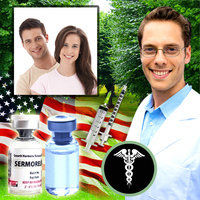Introduction
Chemotherapy, a cornerstone treatment for various cancers, can have profound impacts on the reproductive health of American males. As the prevalence of cancer continues to rise, it becomes increasingly crucial to understand how these treatments affect testicular function and what strategies can be employed to preserve fertility. This article delves into the effects of chemotherapy on testicular function and explores effective fertility preservation methods tailored for American males.
The Impact of Chemotherapy on Testicular Function
Chemotherapy agents are designed to target rapidly dividing cells, which unfortunately includes not only cancer cells but also the germ cells in the testes responsible for sperm production. As a result, chemotherapy can lead to temporary or permanent damage to these cells, causing a decrease in sperm count, motility, and overall fertility. Studies have shown that certain chemotherapy drugs, such as alkylating agents, are particularly harmful to testicular function, often leading to azoospermia, or the absence of sperm in the ejaculate.
Moreover, the extent of damage can vary based on factors such as the type and dosage of chemotherapy, the patient's age, and the presence of other treatments like radiation therapy. Younger males may have a higher chance of recovering their fertility post-treatment, but the risk of permanent infertility remains a significant concern for all patients undergoing chemotherapy.
Strategies for Fertility Preservation
Given the potential for chemotherapy to impair fertility, it is essential for American males to consider fertility preservation options before starting treatment. One of the most common and effective methods is sperm banking, where semen samples are collected and cryopreserved for future use. This technique allows patients to store their sperm before chemotherapy begins, ensuring the possibility of biological fatherhood even if their fertility is compromised by treatment.
For males who cannot produce a semen sample due to their medical condition or age, testicular sperm extraction (TESE) offers an alternative. During TESE, a surgeon retrieves sperm directly from the testicular tissue, which can then be frozen and used for assisted reproductive technologies such as in vitro fertilization (IVF) with intracytoplasmic sperm injection (ICSI).
Another emerging option is the use of gonadal shielding during radiation therapy, which can help protect the testes from radiation exposure and potentially preserve fertility. Additionally, some research suggests that certain medications, such as gonadotropin-releasing hormone (GnRH) agonists, may offer protective effects on testicular function during chemotherapy, although more studies are needed to confirm their efficacy.
The Role of Counseling and Support
Navigating the complexities of cancer treatment and fertility preservation can be overwhelming for American males. Therefore, comprehensive counseling and support are vital components of care. Patients should have access to fertility specialists who can provide personalized guidance on the best preservation options based on their specific medical situation and future family planning goals.
Support groups and mental health services can also play a crucial role in helping patients cope with the emotional and psychological challenges associated with cancer and potential infertility. By fostering a supportive environment, healthcare providers can empower American males to make informed decisions about their reproductive health.
Conclusion
The impact of chemotherapy on testicular function is a significant concern for American males facing cancer treatment. However, with advances in fertility preservation techniques and a focus on comprehensive patient care, it is possible to mitigate these effects and maintain the hope of future parenthood. By understanding the risks and exploring available options, patients can take proactive steps to preserve their fertility and navigate their cancer journey with greater confidence and support.
Contact Us For A Fast And Professional Response

- Testicular Cancer Survivorship: Navigating Health and Well-being Post-Treatment [Last Updated On: February 26th, 2025] [Originally Added On: February 26th, 2025]
- Testicular and Prostate Health: Interconnected Wellness for American Men [Last Updated On: March 16th, 2025] [Originally Added On: March 16th, 2025]
- Testicular Health and Fertility: Advances in Diagnosis and Treatment for Couples [Last Updated On: March 17th, 2025] [Originally Added On: March 17th, 2025]
- Testicular Health and Hormone Replacement Therapy: A Comprehensive Guide for American Men [Last Updated On: March 18th, 2025] [Originally Added On: March 18th, 2025]
- Exercise and Testicular Health: Enhancing Reproductive Wellness in American Males [Last Updated On: March 18th, 2025] [Originally Added On: March 18th, 2025]
- Understanding Testicular Pain: Causes, Diagnosis, and Treatment Options for American Males [Last Updated On: March 18th, 2025] [Originally Added On: March 18th, 2025]
- Economic Impact of Testicular Cancer Treatment on American Males: Costs and Disparities [Last Updated On: March 19th, 2025] [Originally Added On: March 19th, 2025]
- Testicular Health: Essential Knowledge for Young American Males [Last Updated On: March 20th, 2025] [Originally Added On: March 20th, 2025]
- Testicular Health and Mental Well-being: A Holistic Guide for American Males [Last Updated On: March 20th, 2025] [Originally Added On: March 20th, 2025]
- Smoking's Impact on Testicular Health: Risks and Remedies for American Males [Last Updated On: March 21st, 2025] [Originally Added On: March 21st, 2025]
- Testicular Health: Importance of Regular Check-ups and Self-Exams for American Men [Last Updated On: March 21st, 2025] [Originally Added On: March 21st, 2025]
- Testicular Cancer Screening Guidelines for American Men: Detection and Prevention [Last Updated On: March 21st, 2025] [Originally Added On: March 21st, 2025]
- Stress and Testicular Health: Impacts on American Men's Reproductive Wellness [Last Updated On: March 21st, 2025] [Originally Added On: March 21st, 2025]
- Diabetes Impact on Testicular Health: Insights for American Men [Last Updated On: March 21st, 2025] [Originally Added On: March 21st, 2025]
- Overcoming Psychological Barriers to Testicular Health Care in American Males [Last Updated On: March 22nd, 2025] [Originally Added On: March 22nd, 2025]
- Testicular Health and Autoimmune Disorders: A Comprehensive Guide for American Men [Last Updated On: March 23rd, 2025] [Originally Added On: March 23rd, 2025]
- Alcohol's Impact on Testicular Health and Fertility in American Men [Last Updated On: March 23rd, 2025] [Originally Added On: March 23rd, 2025]
- Community Support Enhances Testicular Health Awareness in American Males [Last Updated On: March 24th, 2025] [Originally Added On: March 24th, 2025]
- Steroid Use and Its Impact on American Men's Testicular Health: Risks and Recovery [Last Updated On: March 24th, 2025] [Originally Added On: March 24th, 2025]
- Testicular Health and Cardiovascular Disease: Insights for American Men's Proactive Care [Last Updated On: March 24th, 2025] [Originally Added On: March 24th, 2025]
- Public Health Campaigns Boost Testicular Health Awareness in American Men [Last Updated On: March 24th, 2025] [Originally Added On: March 24th, 2025]
- Occupational Hazards Impacting Testicular Health in American Male Workers: Risks and Prevention [Last Updated On: March 24th, 2025] [Originally Added On: March 24th, 2025]
- Nutrition's Impact on Testicular Health: A Guide for American Men [Last Updated On: March 24th, 2025] [Originally Added On: March 24th, 2025]
- Testicular Health and Sleep: Vital Links and Improvement Tips for American Males [Last Updated On: March 25th, 2025] [Originally Added On: March 25th, 2025]
- Illicit Drugs' Impact on Testicular Health: Risks and Protection Strategies for American Men [Last Updated On: March 25th, 2025] [Originally Added On: March 25th, 2025]
- Chemotherapy's Impact on Testicular Health: Insights for Male Cancer Survivors [Last Updated On: March 25th, 2025] [Originally Added On: March 25th, 2025]
- Ultrasound: Key to Diagnosing Testicular Conditions in American Males [Last Updated On: March 25th, 2025] [Originally Added On: March 25th, 2025]
- Telemedicine: Revolutionizing Testicular Health Care for American Men [Last Updated On: March 25th, 2025] [Originally Added On: March 25th, 2025]
- Exercise Boosts Testicular Health and Fertility in American Men: A Comprehensive Guide [Last Updated On: March 25th, 2025] [Originally Added On: March 25th, 2025]
- Testicular Health and Aging: Understanding Hormonal Changes in American Men [Last Updated On: March 25th, 2025] [Originally Added On: March 25th, 2025]
- Environmental Toxins and Lifestyle Impact on American Males' Testicular Health [Last Updated On: March 26th, 2025] [Originally Added On: March 26th, 2025]
- Understanding Testicular Health: Science, Conditions, and Reproductive Rights for American Men [Last Updated On: March 26th, 2025] [Originally Added On: March 26th, 2025]
- Breaking the Silence: Enhancing Testicular Health and Mental Well-being in American Males [Last Updated On: March 26th, 2025] [Originally Added On: March 26th, 2025]
- Testicular Health and Fertility Preservation: A Comprehensive Guide for American Males [Last Updated On: March 26th, 2025] [Originally Added On: March 26th, 2025]
- Socioeconomic Barriers to Testicular Health Care Access in American Males: Strategies for Improvement [Last Updated On: March 26th, 2025] [Originally Added On: March 26th, 2025]
- Testicular Health and Cancer Survivorship: Risks, Care, and Advocacy [Last Updated On: March 26th, 2025] [Originally Added On: March 26th, 2025]
- Testicular Health: Vital for Male Wellness and Chronic Disease Prevention [Last Updated On: March 26th, 2025] [Originally Added On: March 26th, 2025]
- Testicular Health and Chronic Pain Management Strategies for American Males [Last Updated On: March 26th, 2025] [Originally Added On: March 26th, 2025]
- Vitamins A, D, E, C, B: Essential for American Men's Testicular Health [Last Updated On: March 27th, 2025] [Originally Added On: March 27th, 2025]
- Genetic Counseling: A Key Tool in Preventing Testicular Cancer in American Males [Last Updated On: March 27th, 2025] [Originally Added On: March 27th, 2025]
- Antioxidants: Protecting Testicular Health and Enhancing Fertility in American Men [Last Updated On: March 27th, 2025] [Originally Added On: March 27th, 2025]
- Endocrine Disruptors' Impact on Testicular Health: Risks and Mitigation for American Males [Last Updated On: March 27th, 2025] [Originally Added On: March 27th, 2025]
- Testicular Health: Impact on American Men's Psychological Well-being and Body Image [Last Updated On: March 27th, 2025] [Originally Added On: March 27th, 2025]
- Radiation Therapy's Impact on Testicular Health: Effects, Protection, and Management [Last Updated On: March 27th, 2025] [Originally Added On: March 27th, 2025]
- Lifestyle Diseases and Testicular Health: A Guide for American Men [Last Updated On: March 28th, 2025] [Originally Added On: March 28th, 2025]
- Viral Infections and Testicular Health: Impacts, Mechanisms, and Prevention Strategies [Last Updated On: March 28th, 2025] [Originally Added On: March 28th, 2025]
- Testicular Health and Immune Function: A Vital Link for American Males [Last Updated On: March 28th, 2025] [Originally Added On: March 28th, 2025]
- Breaking Stigma: Enhancing Testicular Health and Mental Well-being in American Males [Last Updated On: March 28th, 2025] [Originally Added On: March 28th, 2025]
- Enhancing Testicular Health Awareness and Education in American Males [Last Updated On: March 29th, 2025] [Originally Added On: March 29th, 2025]
- Support Groups: Vital for Testicular Cancer Care and Recovery in Young American Men [Last Updated On: March 29th, 2025] [Originally Added On: March 29th, 2025]
- Heat Exposure's Impact on Testicular Health and Fertility in American Men [Last Updated On: March 30th, 2025] [Originally Added On: March 30th, 2025]
- Modern Lifestyles and Testicular Health: Risks and Mitigation Strategies for American Men [Last Updated On: March 31st, 2025] [Originally Added On: March 31st, 2025]
- Herbal Supplements for Testicular Health: A Guide for American Men [Last Updated On: April 1st, 2025] [Originally Added On: April 1st, 2025]
- Testicular Health: Understanding, Examining, and Preventing Common Conditions [Last Updated On: April 2nd, 2025] [Originally Added On: April 2nd, 2025]
- Testicular Health and Mental Resilience: A Comprehensive Guide for American Men [Last Updated On: April 3rd, 2025] [Originally Added On: April 3rd, 2025]
- Antibiotics' Impact on Testicular Health in American Men: Research and Implications [Last Updated On: April 4th, 2025] [Originally Added On: April 4th, 2025]
- Environmental Toxins and Testicular Health: Advocacy for Safer Policies [Last Updated On: April 7th, 2025] [Originally Added On: April 7th, 2025]
- Heavy Metals' Impact on Testicular Health in American Men: Mechanisms and Prevention [Last Updated On: April 8th, 2025] [Originally Added On: April 8th, 2025]
- Enhancing Testicular Health: Education, Lifestyle, and Environmental Strategies for American Males [Last Updated On: April 9th, 2025] [Originally Added On: April 9th, 2025]
- Understanding Testicular Health: Science, Disorders, and Literacy for American Males [Last Updated On: April 9th, 2025] [Originally Added On: April 9th, 2025]
- Enhancing Testicular Health Education: The Vital Role of Community Health Workers [Last Updated On: April 10th, 2025] [Originally Added On: April 10th, 2025]
- Advancements in Testicular Health: Diagnosis, Treatment, and Prevention for American Males [Last Updated On: April 10th, 2025] [Originally Added On: April 10th, 2025]
- Mental Health Professionals' Vital Role in American Men's Testicular Health Care [Last Updated On: April 10th, 2025] [Originally Added On: April 10th, 2025]
- Pesticide Exposure Linked to Testicular Dysfunction in American Men: A Comprehensive Review [Last Updated On: April 10th, 2025] [Originally Added On: April 10th, 2025]
- Enhancing Male Wellness: Integrating Testicular Health in Workplace Programs [Last Updated On: April 10th, 2025] [Originally Added On: April 10th, 2025]
- Testicular Health: Science, Disorders, and Proactive Care for American Males [Last Updated On: April 12th, 2025] [Originally Added On: April 12th, 2025]
- Physical Therapy: A Key to Managing Testicular Health in American Men [Last Updated On: April 12th, 2025] [Originally Added On: April 12th, 2025]
- Plastics and Male Health: EDCs' Impact on Testicular Function in American Men [Last Updated On: April 12th, 2025] [Originally Added On: April 12th, 2025]
- Testicular Health and Mental Well-being: A Comprehensive Guide for American Males [Last Updated On: April 17th, 2025] [Originally Added On: April 17th, 2025]
- Exercise Programs Boost Testicular Health and Male Reproductive Wellness [Last Updated On: April 17th, 2025] [Originally Added On: April 17th, 2025]
- Testicular Health and Mental Well-being: Awareness and Action for American Men [Last Updated On: April 17th, 2025] [Originally Added On: April 17th, 2025]
- Educational Campaigns Boost Testicular Cancer Awareness and Early Detection in American Men [Last Updated On: April 18th, 2025] [Originally Added On: April 18th, 2025]
- Enhancing Testicular Health: Nutrition, Education, and Awareness for American Males [Last Updated On: April 19th, 2025] [Originally Added On: April 19th, 2025]
- Testicular Health and Mental Well-being: Integrating Care for American Males [Last Updated On: April 19th, 2025] [Originally Added On: April 19th, 2025]
- Air Pollution's Impact on Testicular Health in American Men: Research and Implications [Last Updated On: April 19th, 2025] [Originally Added On: April 19th, 2025]
- Advancing Testicular Health: Science, Policy, and Advocacy Needs in the U.S. [Last Updated On: April 19th, 2025] [Originally Added On: April 19th, 2025]
- Water Contaminants and Testicular Health: Impacts on American Men's Fertility [Last Updated On: April 20th, 2025] [Originally Added On: April 20th, 2025]
- Genetic Testing: A Key to Managing Testicular Health in American Men [Last Updated On: April 20th, 2025] [Originally Added On: April 20th, 2025]
- Essential Guide to Testicular Health: Awareness, Prevention, and Care for American Males [Last Updated On: April 22nd, 2025] [Originally Added On: April 22nd, 2025]
- Testicular Cancer: Trends, Risks, and Effective Treatments in Young American Males [Last Updated On: April 22nd, 2025] [Originally Added On: April 22nd, 2025]
















